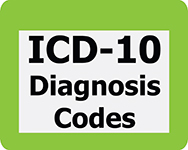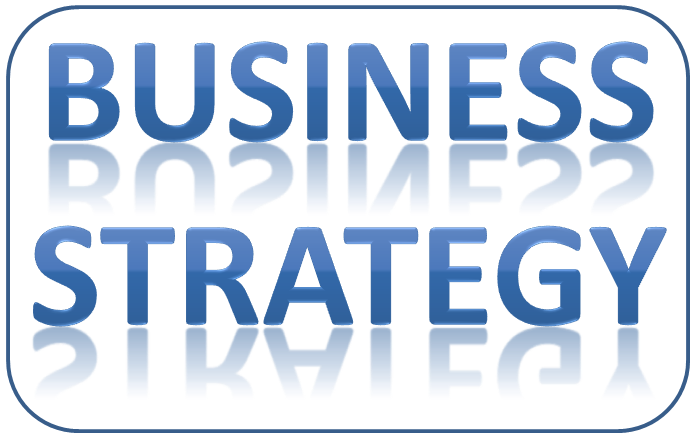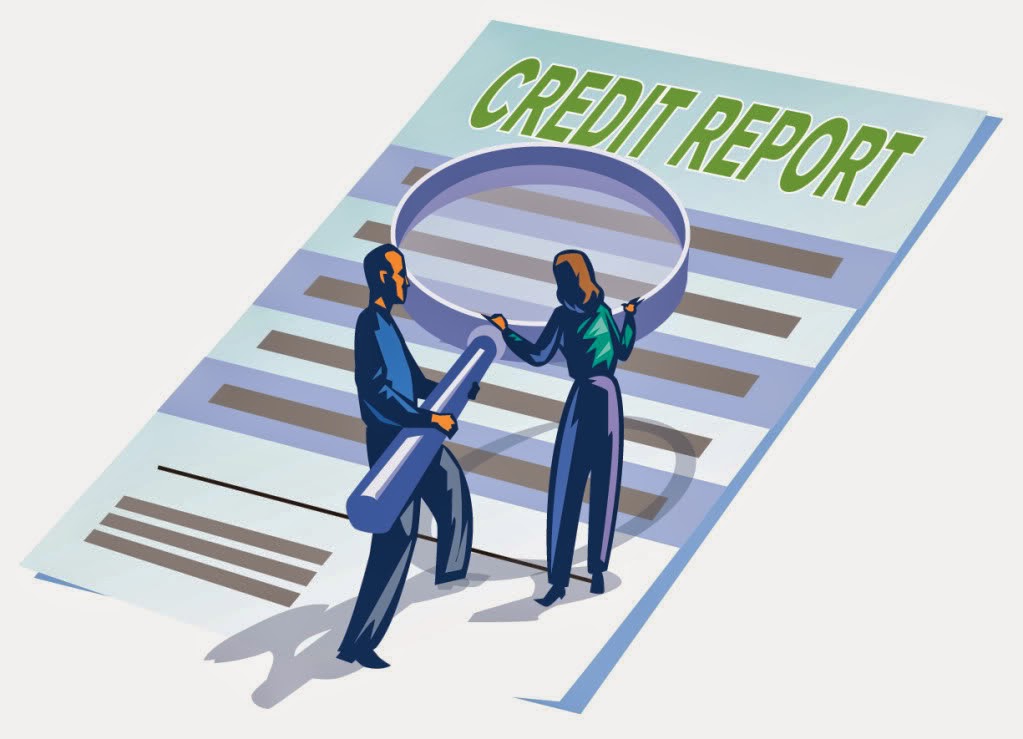ICD-10 Codes for the Chiropractic Practice

ICD-10 diagnosis codes in a step-by-step free webinar. See what Genesis has built for ICD-10 diagnosis codes so your practice will get paid in full and on-time. View this free webinar to see exactly how Chiropractors can choose the correct ICD-10 codes. Comments so far have been positive, “Very Intuitive” and “Easy to Use.” If you’re not already our client, then schedule a free demo. Read the transcript: Jason: Welcome, everyone. It’s really good to have you here this afternoon. It’s Jason Barnes and joining me, as always, is my illustrious co-host to these webinars, Jessica Pancoast, the head of the training and help desk teams here at Vericle. We’re really excited to have everyone and this has been a hot topic. And so we are excited to talk about ICD-10 one more time. And so this will be a recap of a lot of the other webinars that you’ve seen including some of the system updates and what we’ve learned so far. It will not include all of the content because we won’t be doing things like macros today. We are just gonna include the actual system functionality for finding codes, choosing your ICD-10 codes based on your ICD-10s, how to search ICD-10 codes when you’re not cross walking over from an ICD-9 code and making sure that you know how to save those codes, save the searches and group them however you’d like to. So we’ve had some updates there and we’re really excited to share those today. Not only that, if you have not yet actually created those hierarchies in your system, we’re gonna show you how you can go about doing that with a test patient, and to kick it all off we’re actually gonna show you how to find your most popularly used or frequently used ICD-9 codes so you know which ones need to be mapped over. Jess, anything to add? Jessica: No, I think that covers everything that we need to go over. Jason: That’s what we’re planning on doing today. So, thank you for joining us and we’re just gonna dive right into it. Today everyone watching should be familiar with the screen that’s up. This is a fake patient where we are looking at the travel card. You can see there’s x-rays, there’s no ICD-10 or ICD-9 information, and we’re gonna go over that functionality. But before we get into that we actually want everyone to take a break and think about this process as a whole. In order to figure out which codes you’re gonna need to select so that you’re ready to more readily choose your ICD-10 codes, I wanna to take you into another system. This is actually a real practice in our system that we’re showing you right now. All the names have been changed so that we’re not using anybody’s real practice information, but this is the last year worth of billing information by diagnosis code. Our recommendation is that you run a billing status report to find out which ICD-9 codes you most frequently use because what we found is, although there are a number, 10,977 visits with 11,150 code selections used, there were only 40 total diagnosis codes used last year by this practice. And if you look at them by percentage, a vast majority of those visits were covered by 10 codes, 8 codes. So what we want you to do is know how to find out what those codes are for your office. To do that, you head to reports, go down to Billing Analytics, choose your billing stats report that’s how we got here. In the bottom of this report, I recommend going back one year, but six months should be adequate, you change the date range and most importantly you have to choose Diagnosis 1. Now, this might not exist in your drop-down or pop-up, in this case of selections. If it does not that is not a problem, you go back to reports…back to Billing Analytics and then choose your billing stats configuration report. This billing stats config right here will allow you to actually choose Diagnosis 1, make a name for it, save that name and then you’ll have to go back refresh your billing status report and that way you’ll be able to access that new code that you’ve just created for your billing status report. In this case, let’s make a note that 739.1 is the most commonly used code by this particular office. A high-volume office who sent out over 2345 claims in the last year with this diagnosis code on. Jessica, do you have anything else on the billing stats. Jessica: No, that explains all. The only thing I can think of is you wanna make sure that Insurance Only and Pip Only is unchecked down the bottom. Jason: Unchecked, great clarification, thanks. Okay, so getting back to it we want you to be able to create a hierarchy, create favorite codes that will allow you not have to search each time you have a new patient or an existing patient that walks through your door to know what your 739.1 equivalent or equivalents will be in ICD-10. So we’re actually gonna walk you through that process, but the first thing we need to let you know about the three areas where ICD-10 codes are going to be relevant to you. The first you’re gonna see is the ICD-10 traffic light which I am highlighting right now with my mouse. We’re not gonna click on that just yet but most things in our systems that have a color associated with it are drillable or clickable, you can click on those things. The second are the two lines right here where you used to see just your ICD-9 codes, but now you’ll see both ICD-9s and ICD-10s. And then, in two other places, you’re gonna get the same exact interface, both the Diagnoses tab as well as your EMR Assessment tab. And everyone
Is the Infinite Banking System the Answer?

by Garrett B. Gunderson Some of the most frequent questions we get at Freedom FastTrack have to do with infinite banking. The financial strategy, which leverages the living benefits of cash value life insurance, was created by Nelson Nash and is detailed in his book Becoming Your Own Banker. Other popular books on the subject include Bank on Yourself by Pamela Yellen, The Banking Effect by Dan Thompson, Prescription for Wealth by Tom McFie, and Live Your Life Insurance by Kim Butler. I would characterize my attitude toward infinite banking as “cautiously positive.” I’ve personally interviewed Nelson Nash twice by flying him to Utah. I’ve ran hundreds of infinite banking calculations using financial software and consulting financial software developer Todd Langford. I’ve even used the concept in my own life. The problem with the strategy is that most people who do it or want to do it ignore the larger context of their full financial blueprint. It is frequently sold as a magic bullet. It tends to be a classic case of, “When all you have is a hammer, everything looks like a nail.” The truth is that it’s just one strategy and technique surrounding one product. And as you frequently hear me preach, strategies are only as useful and profitable as the people executing them. Infinite banking is a one-trick pony that can be useful in certain circumstances for certain people, but it’s not for everyone and it doesn’t solve every financial problem. To echo another theme I stress, if you’re asking whether or not you should use the strategy, the obvious answer is that you shouldn’t because you’re not educated enough yet. When you know enough about the strategy, you’ll know whether or not it’s appropriate for you, and how to execute it to fit within your particular financial blueprint and meet your specific needs. So let me give a brief overview of the strategy, then I’ll reveal its blind spots and pitfalls and explain how to use it appropriately. What is Infinite Banking? In concept, the strategy is simple: You use your whole life insurance cash value essentially as a line of credit. Instead of paying banks interest when you finance cars or other purchases, you pay that money back into your policy and essentially to yourself. This is done by funding dividend-paying, equity-building permanent life insurance. Once your policy is funded enough to make a major purchase, you utilize your cash value, take out a policy loan to make the purchase, then make “payments”—with interest—back to your own life insurance policy. The cash value of permanent life insurance is referred to as a “living benefit,” because you can access it throughout your life. Whereas term life insurance provides a death benefit only, permanent life insurance offers living benefits, such as the cash value, tax-free growth and tax-free withdrawals (under specific guidelines), liquidity, dividends (on certain policies), and liability protection (in most states). The strategy is smart, to be sure. Consider a five-year, $20,000 auto loan at 7 percent interest. On that loan your monthly payment would be $396.02. At the end of five years, you’ll have paid $3,761.44 in interest alone. Why not recapture that interest to build your own wealth, rather than padding bankers’ accounts? By the time you pay off the car, instead of just having a dramatically-depreciated asset, you’ll have the car, eventually you can build a way to have your $20,000 restored, and you can even have an additional $3,761 (not fully considering the interest that the insurance company may charge you on the borrowed money). So what could possibly be wrong with the strategy? Problem #1: Insurance Protection Comes First The trick to making infinite banking work as quickly and effectively as possible is typically getting a low amount of insurance coverage (face value, or death benefit), then max out your premiums (also known as over-funding the policy). Remember that the goal is to build up your cash value. The focus is on the living benefits, not the death benefit. But fully protecting your human life value with the proper death benefit amount should take precedence over any living benefit. Infinite banking makes the cash value the main benefit of permanent life insurance and overshadows the importance of the death benefit. Before you even consider infinite banking, you first need to maximize your insurance protection. That is the primary and most important purpose of life insurance. Living benefits are nice, and in most cases I highly recommend permanent life insurance with living benefits over term insurance. But they should be viewed in their proper context as supplemental benefits, not the primary benefit. In fact, before you even consider the type of insurance you should buy, you first need to understand how much death benefit to have. Your amount of life insurance to protect your economic value (replacement of income) is the primary consideration to drive all decisions regarding the type you purchase. This is why I don’t always advocate whole life insurance 100 percent of the time. I’ve seen too many cases where insurance salesmen sold permanent policies people couldn’t afford, and who then lost their policies because they couldn’t fund them. Just as it’s a problem to get too little insurance coverage, it’s also damaging to get too much whole life insurance. Focusing on death benefit first avoids problems like this. Some people may purchase convertible term insurance now to get the proper amount, then convert it to permanent insurance as their cash flow situation improves. (HINT: make sure your term insurance is convertible and with a company that has whole life insurance). This is another way to say that a person’s comprehensive financial blueprint should govern financial decisions, which leads me to my next point. Problem #2: Lack of Context Infinite banking, if right for you, should be just one piece of a much larger puzzle. It shouldn’t be the one thing you implement at the expense of other important things in your life. Your complete financial blueprint
What Business Owners Should Prepare for in the Current Political Environment

Do Business Owners overpay taxes? by Brett Sellers, CPA with Garrett Gunderson We find that 93 percent of business owners are overpaying on their taxes, yet 100 percent say they don’t prefer overpaying them. Plus many are concerned or even afraid about the changes and current tax environment. So with so much talk now about an impending “financial eclipse.” I’m no prophet, but it doesn’t take divine revelation to know that our current situation is tough for business owners, and it will likely get worse. President Obama has defined the wealthy individuals with incomes over $200,000 and married couples with incomes over $250,000. Although he campaigned on not raising taxes on middle class, he wants to increase the taxes on taxpayers earning above those amounts. He wants to reinstate the 36 and 39.6 income tax rates on high-income earners. He is also pushing to increase the capital gains tax rate from 15 percent to 20 percent, and a dividend rate raise from 15 percent to at least 36 percent. So what can you do about it? The best advice I could give any business owner isn’t technical or legal—it’s mental and philosophical. Your decision to increase your productivity will impact your business and net worth far more than any technical advice I could give you. Tax rates will likely go up. Nothing we can do about that. What we can do is increase our production to offset the tax increase. The antidote of a 5 percent tax increase is to increase production by 10 percent. Someone once wisely said, “You’ll never go broke paying taxes.” If you’re not paying taxes, it means you’re not making any money. If you pay more in taxes, it means you’re making more money. So don’t let your attitude and actions be dictated by doomsayers. Don’t be frozen in fear or frustration. Be proactive and productive. Concern yourself less with technical tax code and more with growing your business. Having said that, I’ll also stress that the current environment makes tax planning even more important than ever. If your car insurance rates go up, it becomes important to consider your policies. Likewise, if your tax rates go up, the benefit of tax planning is exponentially higher than it was before. More diligent planning is a vital strategy for dealing with increased tax rates. If your tax rate goes up by 5 percent but you can find 5 percent more in deductions by better planning, you’d be in about the same place. Truthfully, there are no real opportunities to be harnessed now. The best you can do is to mitigate damage by hiring a good tax planner. But, while you’re working on finding more reductions, remember that your best bet is to increase your production. If this philosophy is congruent and you want to know specific strategies, check out the upcoming Curriculum for Wealth where Garrett will interview Brett and get straight to strategy to put money in your pocket. Don’t be part of the 93 percent overpaying tax, find money without having to work harder, hire more people or lose any more sleep. http://www.freedomfasttrack.com/cfw Brett Sellers is a licensed CPA at Stewart, Archibald, and Barney, LLP in Las Vegas, Nevada. He has worked with business owners for more than twenty years. Brett feels strongly that a business cannot achieve long-term success without accurate financial data and a constant measuring of the key activities of the business.
Focus, Identify, Create Value and Repeat

by Garrett B. Gunderson Your recipe for working with people you enjoy, know you can help, and making more money. To be as productive as possible it is essential to be crystal clear about what your business is specifically designed to do, and who you are ideally positioned to serve. This means identifying your best existing patients and figuring out who they really are as people. If you can understand what age group, gender, education level, what they do for hobbies, what books they read, where they hang out, how much money they make, etc. then you can make it a point to go out and find more people who are just like your best patients/customers. To do this make a conscious choice to determine who is already existing and “Ideal”, and build a relationship with them. Have appreciation dinners, invite them out to hike or snowshoe, or share experiences with them. Let them become more than just clients or patients – build a relationship. In this process you will not only learn how to serve them better, you’ll understand how to attract more people just like them. This leads to a business full of people that you love to see and who love to come see you. Once this happens the profits are an inevitable result of serving those that appreciate your value the most. They key is to overcome the concern that is you focus or get to narrow that you will miss out on others you could have otherwise have worked with. Here are some questions and considerations to help address and overcome this objection. If you were to look at your top 20 percent of people you work with what percentage of your revenue are they responsible for? How many people have they referred versus the bottom 20 percent? What percentage of your time is used for addressing people that do not pay on time, do not refer people and do not appreciate your service? What impact does that have on your energy, confidence and ultimately the bottom-line? Do you think there are plenty of people in your community or even your state that fit the “ideal” profile? What would your life look like if that was who you spent your time and focus on? What level of value could you create for them? How would it allow you to focus more on value creation and less on appeasing people that do not appreciate who you are, what you do or that simply are not compliant with implementing your recommendations and getting the full value you offer? So, find the best people that you enjoy working with the most. That gets the best results and refer the most people. Focus on building those relationships, cultivating those relationships, and asking them how you can create the most value for them. To discover other overlooked opportunities most business owners miss and to gain more freedom in your business as we expose models most didn’t think was possible, yet are achievable in a short period of time, check out www.freedomfasttrack.com/cfw as I interview business strategist Brandon Allen. Brandon opened up and built Wells Fargo branches for a decade before becoming the COO of my firm, Freedom FastTrack. In order to more fully express his expertise and purpose he now shares his insights and discoveries through business expansion and management with Freedom FastTrack members. In a bottom-line, no fluff interview he will be sharing how to: Integrate metrics and numbers to improve business Unveil the biggest mistakes business owners make in managing their business (he exposed this for me and transformed my INC 500 business) How can you create and leverage your authority in your market How to address and confront employee behavior in the business Time management The key habits to run a successful business and more
Is it truly one of the inevitable things in life?

Why although paying taxes is inevitable, overpaying them doesn’t have to be. How would you feel if you found out you were overpaying your taxes? Most people want to pay as little in taxes as possible, but many times have no idea of whether they are overpaying or not. Without going into huge amounts of detail (and boring your socks off) there are a few simple things to know about taxes that can make a big difference. First, there is no better way to keep more of your own money than to make more. Often people pass up income because they might have to pay more in taxes – that’s just crazy. If you got to pay 25 cents to earn a dollar, how often would you do it? Never pass up a chance to make more money in congruence with your purpose. If you own a business, do you have the proper entity structure to maximize your tax advantages? Not all entity structures are created equal so if you have a partnership, sole proprietorship, or even the wrong type of corporation for your business, you may be missing out. Learn about how to take your income as well. Salary may be taxed differently than dividends. In my research with 117 people in my program, 107 were overpaying their taxes. More alarming is that 2/3rds felt they had it all handled and their accountant was doing a great job. If you want to find out if you are overpaying or not, take a quick look at our Financial Health Assessment at www.freedomfasttrack.com/cfw and answer a few questions. If you answer no or uncertain, then check out the Curriculum for Wealth series when I go into depth and leave nothing locked away as “secret” as I dig in with the CPA in our network to give you the insights necessary to find money that is being overpaid. So, you can check with your tax professional on the best way to employ these ideas for your specific situation, or join us on the Curriculum for Wealth as we go through the checklist of most important areas to save tax.
Why Professionals Get Screwed on Taxes

How to Reduce Your Tax Burden & Boost Your Productivity by Garrett B. Gunderson with Brett Sellers, CPAAs a Financial Advocate to chiropractors, dentists and other professionals, I once performed a survey of my doctor clients. Out of 117 doctors, 107 of them were overpaying on their taxes—and many of them by tens of thousands per year. This can be easily avoided, and reducing your taxes is the lowest-hanging fruit for increasing your cash flow and productivity. Here are the most important things every business owner should know about taxes: Don’t Let the Tax Tail Wag the Dog of Productivity Would you rather pay $1 million or $10 million in income tax? Most people say $1 million. My answer is always $10 million, because it would mean I made much more money than if I owed $1 million. Taxes should definitely be taken into consideration with any financial plan, but some businesses actually don’t want to produce more because they’re afraid of paying too much in taxes. They base financial decisions primarily on tax ramifications. In other words, they let the tax tail wag the dog of productivity. Bottom line: Your first and best defense against taxes is always to earn another dollar, rather than limiting productivity and settling for a lower income in the name of saving on taxes. Be Proactive, Not Reactive By Using a Tax Preparer, Rather than a Tax Strategist Most small businesses have a CPA that simply prepares their taxes at the end of each year. This makes them reactive rather than proactive. Instead of anticipating and strategically solving potential tax problems, such tax preparers scramble to limit your tax liability just once throughout the year. And to accomplish this, they usually tell you to dump as much money as possible into a qualified plan, or recommend other things that you otherwise wouldn’t do except to save on taxes, which creates even more problems down the road. In contrast, a tax strategist makes tax season a non-issue by keeping you organized, creating and tracking financial benchmarks throughout the year, and limiting your tax burden. Plan for the Future, Don’t Defer to the Future Typical scenario: At year’s end you bring your taxes to your CPA, and one of her primary and automatic recommendations is to put money in a qualified retirement plan. This is lazy accounting at best. Are taxes going up or down in the future? Do you plan on being more or less successful in the future? So why would it be a good strategy to save on taxes today in a way that creates a bigger tax burden tomorrow? Of course, traditional retirement planners will tell you that when you retire you can live on 70 percent or less of your pre-retirement income, and that living on this percentage will lower your tax bracket. First of all, no one knows exactly what future tax brackets will be. And with the current economic and deficit environment do you think that tax rates are going to stay at these historic lows? Historical marginal tax rates for the lowest and highest income earners in the United States. Source: U.S. Bureau of the Public Debt Second, is this really how you want to spend your retirement years: living cheaply, afraid to spend the money you’ve earned for fear of triggering tax consequences? Do you really want to have a lower standard of living when you retire? In contrast to qualified plans, there are other products and strategies that provide much better exit strategies upon retirement while still offering tax benefits during the growth phase. This doesn’t necessarily mean you shouldn’t ever contribute to a qualified retirement plan. But such a decision needs to be part of a holistic, long-term financial plan that supports your purpose and passion, not a reactive and misguided accounting strategy based solely on numbers today. Increase Your Deductions With Confidence Entrepreneurs frequently ask CPAs for a clearly-defined, bullet-point list that spells out legitimate deductions explicitly. But Section 162 of the IRS tax code simply states that you can deduct all “ordinary and necessary” business expenses. For most business owners, this means they can and should be deducting far more expenses than they currently are. Deduct anything and everything connected with your business, while making sure you can build the case to support the connection. Incorporate to Reduce Your Rate I’m shocked by how many people operate as sole proprietors, which is the worst arrangement possible for taxes. Incorporating limits your liability and protects your personal assets, increases your deductible expenses, gives you greater tax flexibility, and helps you build a sellable business. A competent attorney that coordinates the strategy with your CPA can help you choose and properly structure the right entity. Withdraw Business Income Strategically As an owner of a business, you wear at least two hats (you may also be the landlord). You understand that you should be compensated as wages for the practice of dentistry for example, but how you withdraw business profits can have a significant impact on your taxes. Withdrawals can come in the form of additional salary or dividends. Depending on your corporate structure, the withdrawal of dividends can greatly reduce your overall tax because certain distributions of corporate profits are not subject to employment or self-employment taxes. Again, consult with a competent and strategic CPA to get further details for your unique situation. Use Cost Segregation to Benefit from Depreciation If you own your building, “cost segregation” can make a drastic difference in deductions due to depreciation. This effective but under-utilized accounting technique shortens the depreciation period of your assets for taxation purposes, and results in reduced tax liability and increased cash flow. The most effective way of segregating costs and supporting these accelerated depreciation deductions is to engage an engineering firm to perform a cost segregation study. Get Deductions by Investing in Your Business Section 179 of the IRS tax code allows you to deduct the full purchase price of qualifying equipment and/or software
The Safest & Quickest Way to Become Debt-Free

by Garrett B. Gunderson with Dale Clarke The Counter-intuitive Formula Your Financial Adviser Doesn’t Know Hint: It’s not about your loan interest rates, nor is it just about socking away more money by cutting back or even just about saving money on interest. As a financial advocate to professionals, I deal with this issue frequently with the business owners we work with. You want to get out of debt so you can reduce your risk, increase your cash flow, and have greater peace of mind, right? Unfortunately, in a zealous effort to get out of debt, too many people make critical mistakes that increase their risk and make the process much slower than it has to be. It’s not just a matter of prioritizing which loans should be paid off first. It’s also a matter of minimizing your risk throughout the process. Here’s the fastest, safest, and most sustainable way to do it: 1. Build Savings First. It doesn’t make any sense to start paying extra on loans until you have at least three months of income, and ideally six months, in a liquid savings account. If you have no cash reserves, what happens when you pay down your loans but then experience an unexpected cash flow crunch? You simply increase your loan balances again or even worse, miss payments and hurt your credit score, therefore getting charged more for future loans and you can miss opportunities to lower your interest rates. So before you even get started with paying down debt, build your cash reserves first. This puts you in a much safer and more sustainable situation. Don’t worry if you are wondering where that money might come from, details to follow, read on. 2. Raise Your Insurance Deductibles. Once you have cash reserves you can raise your insurance deductibles and extend elimination periods, which decreases your premiums, an extra benefit of having money in savings. This increased cash flow can then be used to strategically pay down debt. I recommend using your home, auto, and liability insurance to primarily cover catastrophic losses. With higher deductibles (again, assuming you have cash reserves to cover small losses) you’re less likely to make claims, which prevents increased premiums. The larger principle here is that when you approach debt elimination the right way it affects almost every other aspect of your finances. This is a more comprehensive approach that takes every factor into consideration, rather than looking at your debt in a vacuum. 3. Restructure Your Non-Deductible Debt by Rolling Short-Term, High-Interest Loans into Long-Term Tax Deductible, Low-Interest Loans. Again, the goal is to minimize your interest payments and maximize your cash flow. Then you can attack your remaining debt strategically, using your increased cash flow to eliminate one loan at a time. Another benefit of this strategy is that it improves your debt-to-income ratio, which then improves your credit score, which can then be used to negotiate lower interest rates and will result in increased cash flow. Having a better credit score also gives you more negotiating leverage. You can look into a streamline refinance on your existing mortgage. You can call your credit card companies, for example, and tell them you’re considering canceling and switching. They may be inclined to make their interest and terms more favorable for you, especially if you have a higher credit score. Assuming you have enough home equity and after improving your credit, refinance your mortgage and roll as much of your non-deductible loans (credit cards, auto loans, etc.) into it as possible. The tax deduction will also increase your cash flow. CAUTION: Do NOT do any of this if you’re undisciplined and your spending is out of control. If you’re just going to charge your credit cards back up again, you’ll just sink deeper into debt. 4. The Secret Sauce: Cash Flow Index. Here’s where the rubber hits the road. After minimizing your payments and maximizing your cash flow, you’re now prepared to focus on one loan at a time, thus creating the “snowball effect” until you’re completely debt-free. Most financial advisers and pundits will tell you to pay off your loans with the highest interest rates first. My advice is to ignore the interest rate and use my proprietary Cash Flow Index to determine which debt to pay off first. To determine your Cash Flow Index, take all your various loan balances and divide each of them by their respective payments. Whichever one has the lowest number is the one you should pay off first. For example: Home Loan Balance: $228,000 Interest Rate: 7% Monthly Payment: $1,665 Cash Flow Index: 137 ($228,000 ÷ $1,665) Auto Loan Balance: $16,500 Interest Rate: 8% Monthly Payment: $450 Cash Flow Index: 37 Credit Card Balance: $13,000 Interest Rate: 12% Monthly Payment: $260 Cash Flow Index: 50 Student Loan: $107,000 Interest Rate: 3.9% Monthly Payment: $650 Cash Flow Index: 165 In this example, it seems to make sense to pay of the credit card first because it has the highest interest rate. But the Cash Flow Index reveals that the auto loan should be paid off first. The trick is to pay off debt that gives you the greatest cash flow with the least investment. A high Cash Flow Index means your loan balance is high relative to the payment, while a low Cash Flow Index means your balance is low but with a high payment. Knock out those high payments first and you free up cash to work on other debts. In this case, by paying off the auto loan first, you free up more monthly cash, which can then be applied toward the credit card balance. Paying off the auto loan first means you can pay off both faster than if you started with the credit card. 5. Address the Risk Factor. Again, this strategy isn’t just about paying off debt faster and saving money on interest—it’s also about reducing your risk. Banks and other financial institutions tell you to pay off debts that lessen their risk
How to get out of debt without giving up your life

Strategies on paying off debt faster, paying banks less interest, and having some fun along the way. by Garrett Gunderson The key to getting out of and then staying our of debt isn’t just about working harder and limiting your spending; it starts with the proper mindset. To dig a bit deeper, the root of debt comes from consuming more than you produce. It is critical to be clear about purpose and how to produce in order to stay out of debt. One must always produce more than they consume. Without discovering where there may be a scarcity mentality or limiting beliefs, debt will be a constant companion. Once you have recognized and have begun to conquer the scarcity mentality around money, then you’re ready for the tools that can help you with being efficient on paying off and understanding your debt. One of the most effective ways to approach debt is to use the Cash Flow Index. The CFI is a scoring system to help you identify the efficiency of each of your debts. This scoring system will allow you to pay off the most inefficient debts first and then allow you to prioritize the order to maximize paying off your debt. Here’s how it works. Take the balance of the loan and divide it by the payment of each debt. The resulting number is the CFI rating. The lower the number, the less efficient the debt is and the sooner you should pay it off. To pay off debt as quickly as possible, pay the minimum on all debts except the one with the lowest score. Then take all other available ‘pay down money’ and pay it toward the least efficient debt. Once it’s paid off move to the next lowest score and pay it off. Rinse and repeat. Each time a loan is paid off your debt-to-income is improved. This is the percentage of each dollar you earn that is required to be paid towards required loan payments. When this is improved, your credit score can be improved as well. With less debt load, lower debt-to-income, and a better cash flow scenario, it is time to get better interest rates. Talk to your financial institutions after paying off a loan. Refinance, replace, or restructure. Now with your interest savings, the same payment will go further with paying down principal. Create small rewards and celebrate the victories along the way. You will feel the progress, live better, and have more fun. This isn’t just about sacrifice and delay, it is about living! This is one small piece of our greatest area of expertise and result. Cash Flow! To learn the very strategies we have taught our members and saved an average of $2,484 per MONTH, check out the Curriculum for Wealth by going to www.freedomfasttrack.com/cfw.
What does a Caveman, Lizard (Gecko), and Progressive’s Flo have in common?

Why cutesy marketing is costing you money and leaving you exposed. by Garrett Gunderson If you’re like most people, you are overpaying for insurance (and it isn’t because you chose cavemen or lizards or maybe those are geckos). What’s even worse is that in spite of paying too much, you may not even be properly covered if something major happened. How would you like to pay less money for more insurance coverage? The purpose of insurance is to cover the ‘big stuff’ that would be catastrophic or you don’t want to dip into your assets or income for when it happens. You can likely cover the small claims, fender benders, petty theft, wind damage to the house, etc. out of your own pocket – especially if it saved your money each month on your premiums, right? However, could you cover a $500,000 claim? Most people can’t… So it makes sense to consider raising your deductibles to save money, and then using those saved dollars to get the highest limits possible on your coverage. This way you’ll have coverage where you need it (the big claims) without the extra expense of a low deductible taking your money every month. Let me explain more… Small ‘fender bender’ type of things happen the most often, so a low deductible costs a lot. However, the six figure claims are rarer, so higher limits are quite affordable. Often raising your deductible a few hundred dollars offsets the cost of getting hundreds of thousands of dollars in additional coverage. So consider raising your deductibles to match your comfort levels to save money. Next increase your limits so they will protect you from the claims that could take everything you’ve worked to hard to save. With a little luck it’s likely that you can be paying less for a LOT more coverage. Even though I have to admit, some of the insurance commercials are entertaining, it isn’t a laughing matter to overpay or be over exposed. In the areas of car, home, and liability coverage there are several components: Personal Injury Protection Medical Payments to Others Deductibles Property Damage Uninsured Liability Limits Under-insured Liability Limits Bodily Injury Liability Limits Underlying Limits Replacement Coverage Actual Cash Value Coverage and more with just these three types of policies. Most of the time I find duplicate coverages, unnecessary exposure, lack of coordination or understanding for that matter. If you want to dive in further make sure to check out your own situation for free at www.freedomfasttrack.com/cfw.
I’m thinking of a number…

Why credit matters and what it takes to get the best rates available. Do you remember that commercial where the guy says he is thinking about a number between 500 and 800? He was talking about credit. If your credit is good that might not be enough. We have entered an age where it has to be great, but if it is you can look forward to cheaper insurance, lower interest rates and less hassle when you get a loan. 83 percent of Americans have an error on their credit report. ¼ of them are denied a loan they would have otherwise had. By simply having 1 additional point when closing on a loan it can be the difference of thousands of dollars in additional interest. So, whether you have good credit, or less than perfect credit – you may be unnecessarily leaking cash by not taking advantage of what is available to you through your existing lenders in today’s low interest rate environment. First, go to any of the credit monitoring agencies sites or google credit score and take a look at your credit. Do you see any errors? Misspelled name, wrong address, an account that doesn’t belong to you, or a late payment you didn’t know about. By clearing these issues up you can improve your score. Now, in the past 720 was a magic number for your credit, but if you can achieve 780 or higher there are simply better options and better interest rates available. After correcting your errors, now you can ask for better interest rates. For example: If you have credit card debt at an interest rate that was determined years ago or that was obtained when you may have had a lower credit score than you do now, you may be able to lower that interest rate. Just call up the credit card company and ask them to send you to the special promotions department or someone who can assist you in changing your credit card. This will send you to the right department that has the authority lower your rate. It’s as simple as knowing how to ask. Another case where using your credit can help you free up cash flow is in the case of a home mortgage. By calling up your existing lender and asking for a “streamline refinance” you may be able to lower your monthly payment with little cost and minimal effort! Simply ask your lender if you qualify and be sure that they understand that you may consider going elsewhere if they can’t help you. If the situation is right, your lender may lower your interest rate with little to no closing costs or without requiring full appraisal, or without you having to jump through the hoops associated with a conventional refinance. Always dress up your credit by monitoring and managing it properly. Then ask for lower interest rates, you could save hundreds (or more) of dollars per month on your existing debts! If you want to know 9 other areas where you can improve your credit, check out our Curriculum for Wealth series where I interview two credit experts and get right to the bottom of what to do. All the information you need in a concise and yes, this is bold, entertaining way. www.freedomfasttrack.com/cfw

